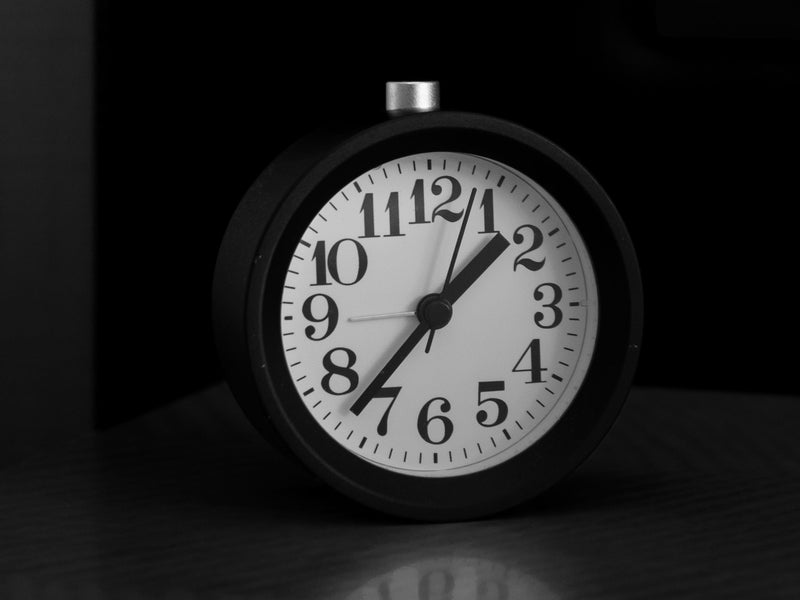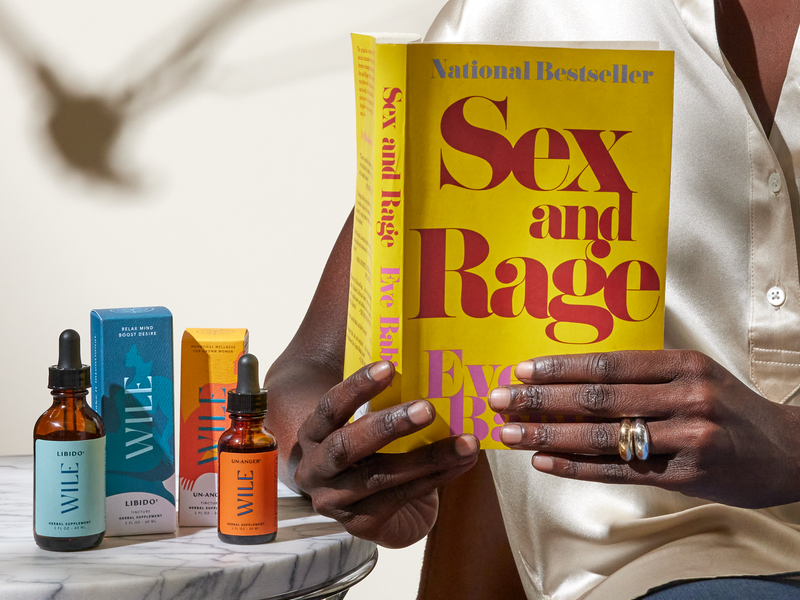We talked to the inimitable Dr. Shieva Ghofrany, OB/GYN MD and founder of Tribe Called V. As a no-BS educator, board-certified physician in private practice and person in full remission from cancer, she has a unique perspective that holds both conventional and natural medicine as part of truly integrated healing and care.
You’ve called cancer “a professor” for you, and thanked it for teaching you how to care for yourself. We were struck by that, as it’s exactly how we see the changes of midlife, perimenopause included.
Can you share more on perspective and how you came to it?
Dr. Shieva: We’ve heard the sentiment that cancer sucks. And listen, it does. For so many, and God forbid for those who don’t survive it.
And I never looked at it as, “Things happen for a reason.” I actually don't think things happen for a reason. I always say things happen. And once they happen, it's up to me to find reason within them.
All that said, I also don't find it valuable to be so angry at it. Somehow cancer found its way to me and decided to use my body as a fertile ground. And so rather than be angry and pissed, I decided to figure out how to use it and to learn what I can from it. Then let me graciously accept that it was just trying to do what it was trying to do. Just like we're trying to do what we're trying to do here on Earth. And so I was also happy to say goodbye. You don't need to come back or show me anything. That’s a long winded way of saying why it came about.
It’s like we say at Wile, change is inevitable, make it intentional.
Big life or health changes often trigger re-evaluation of how we’ve been living or taking care of ourselves. Often, people then discover naturopathy and supplements. As an MD and gynecologist, what’s your take on integrating conventional and natural medicine (often called functional medicine)?
Dr. Shieva: I say this all the time: I've always loved Western medicine or allopathic medicine, because it's how I was trained. And I really do see a lot of value in it. But I've always also appreciated and accepted that we are limited in what we can do with allopathic medicine.
When we say that another method doesn’t have any evidence, that’s often because no one's looked for the evidence or made the connection. So I think we—the integrative side and the allopathic side—need to forge together.
When I got diagnosed, I joked that I took my toxic chemotherapy gladly into my veins because I knew it was going to be the thing that would stop the cancer. But I also did acupuncture, changed the way I was eating, began meditation. I did a lot of things whether or not they all had “proof…”
We're misguidedly led to believe that we can then control everything and then it leaves us feeling bereft because there's no way you can control everything. Doctors can't. Patients can't. Humans can't.
And together, they take care of you and help strengthen your body, spirit, recovery. It’s not just about the cancer cells, it’s your whole health and well-being. That’s what holistic care is all about.
Dr. Shieva: There's so much that we don't understand, right? Like, who are we to say that something doesn't actually help cancer indirectly or directly when we don't really know, we haven't studied it all. Of course, stopping short of what will potentially cost you a huge amount of money or be harmful. I think using alternative and integrative and complementary modalities is so valuable and important. And I think that we know that a lot of them have been studied in different ways.
Wile sees ourselves in partnership with conventional healthcare, both on a shared path to help women. But conventional health care is not always on that page. How can we bridge that gap? Any advice for a patient trying to talk to their M.D. about supplements or other modalities?
Dr. Shieva: The biggest concern I have in healthcare today is that the rift between patients and doctors is only getting bigger. And it's so multifactorial. Partially because patients consistently feel gaslit by their doctors.
Often, the gaslighting is not intentional, it is because the structures of our current healthcare system limit the doctors’ ability to practice.
For example, when taking care of my patients, I talk fast, I talk a lot, I go overtime, my patients wait. Despite that, I still don't have time in 15 to 30 minutes to go through all the things with a patient.
So if a doctor doesn’t have time to review all the modalities with you, we as allopathic doctors should all be open to patients trying what they’d like, even if we don’t know much about it—as long as we're sure that it's not going to cause harm.
There are certain supplements during chemotherapy, for example, that really can go against chemotherapy. With some things, we need to be cautious. But I think the best way to approach it is to talk to your doctor, you know, without being defensive and say, here are the other things I'd like to try. Do you know anything about it? I always say the same thing about naturopathic or integrative doctors who discourage patients from considering an antidepressant or hormone replacement. Same way, a regular MD should never be against you trying certain things. Neither to me is not a healthy practitioner. And I'm not so optimistic that the rift will be made smaller anytime soon. But I do think more conversations like this are a start.
After 40, cancer diagnoses seem to be happening all around us. It’s almost becoming a rite of passage, and it seems to hit more women than men. From your position as a physician, does this seem accurate?
Dr. Shieva: No, I think you're right. Yet the data does not show that more women get cancer than men. I've always said, I think we get more cancers because we have more anatomy. Like, you think about it, men who have a prostate that we don't have, but we are more likely to get breast cancer, we have ovaries, tubes, uterus, cervix, vagina, vulva. However statistically we don't have higher rates of cancer than men but, especially in the younger years, like in the 40s, it may seem like it because we get our mammograms and all those risks are increased.
About a third of people will get cancer in their lifetime. It's a fact of life. And in fact, the vast majority of those have an early diagnosis and will be ok and survive it.
So I really wish we had a better PR campaign for cancer where we didn't equate cancer with death all the time, even though we know that unfortunately, it still happens.
But I think that's a ripe opportunity for us to reflect: “How many people in my life do I know who have been diagnosed with cancer?” I pray that I'm correct that for most, the majority of people we know are still alive and doing ok.
That's not to say that cancer does not suck. It sucks, and that we still can and need to do better at trying to prevent it and trying to find it early. But let’s continue to do that, and live with less fear at least. And we can certainly use products like Wile products, like acupuncture, like certain vitamins to really feel better during the process, for sure. I mean, that helped me a lot.
With women's health, so many areas have not yet been well researched or understood. We need to do what is best for us and unfortunately, try different things. Because the alternative is often just to grin and bear it, and women have been told to do that for too long.
Dr. Shieva: That's where it gets back to like the rift in medicine. There’s not enough time to discuss things. You may hear from a doctor, “There’s nothing wrong with you, I've done your blood work, you're fine.” And that’s technically incorrect, because you don't feel fine. And even though there's nothing “wrong,” because it might just be perimenopause, you deserve to be treated.
Or a doctor may say, “Here's HRT,” and that's it, without a discussion.
What doctors need the time to say is, “This is going to be a process.” And frankly, the patients and women have to be mature enough to hear that. It’s going to potentially take a couple of days, weeks, months, years for us to get through this and figure it out. It may change every other month, because something might work for a while and then you change. And that's exhausting and frustrating. But we need to set people up for success by never pretending that there’s one size fits all. It’s not that everyone will feel good on hormones, or that no one should take hormones, or everyone should use ashwagandha, or no one should use ashwagandha. It's a process we all need.
But again, we all need time to, to say it and to hear it as doctors and patients and practitioners and all of it.
And that’s what my Tribe Called V community is all about, helping hold those discussions and really educate women on all things related to gynecological health.
Find Dr Ghofrany at:
@fiercelovebigjuju
This conversation was edited and condensed for clarity from an IG Live.
This article is intended for informational purposes and is not intended to replace a one-on-one medical consultation with a professional. Wile, Inc researches and shares information and advice from our own research and advisors. We encourage every woman to research, ask questions and speak to a trusted health care professional to make her own best decisions.




